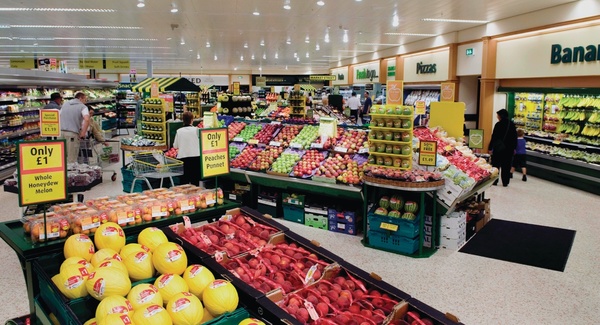Shop prices fell by 2% year-on-year in February, the 34th successive decline following January‘s 1.8% fall. The continued deflation was reported by the British Retail Consortium and Nielsen in their monthly Shop Price Index.
Following a 0.1% rise in food prices in January, February reverted to a 0.4% fall. The BRC commented that the results suggest that the rise in food prices at the beginning of 2016 could be viewed as a blip.
The decline comes at a time where big four supermarket chains are continually cutting their prices to keep up with one another. Morrisons announced price cuts on 1,000 everyday products in February after Asda committed to investing an additional £500m on price cuts, on top of the £1bn in 2013.
“Getting a larger share of the wallet of shoppers continues to be a challenge for many food and non-food retailers and competition remains intense on the high street,” said Mike Watkins, Head of Retailer and Business Insight at Nielsen.
“Food prices continue to fall as Supermarkets are working hard to stimulate sales with price cuts rather than multi-buy promotions, and this is leading to continued deflation in food. With uncertain market conditions, offers and discounts are likely to continue for the time being.”
Non-food prices continued to fall at 3% for the third month in a row. Clothing, footwear, electricals, DIY and books all saw the greatest reductions.
“With consumer confidence falling back and wage growth remaining subdued, retailers continue to support their customers with prices and promotions to maintain market share in the tough trading environment” said BRC Chief Executive Helen Dickinson.
“Against this backdrop we are asking government to work more collaboratively with us to address business rates and ensure the successful implementation of policy measures, such as the national living wage and the apprenticeships levy.”


















